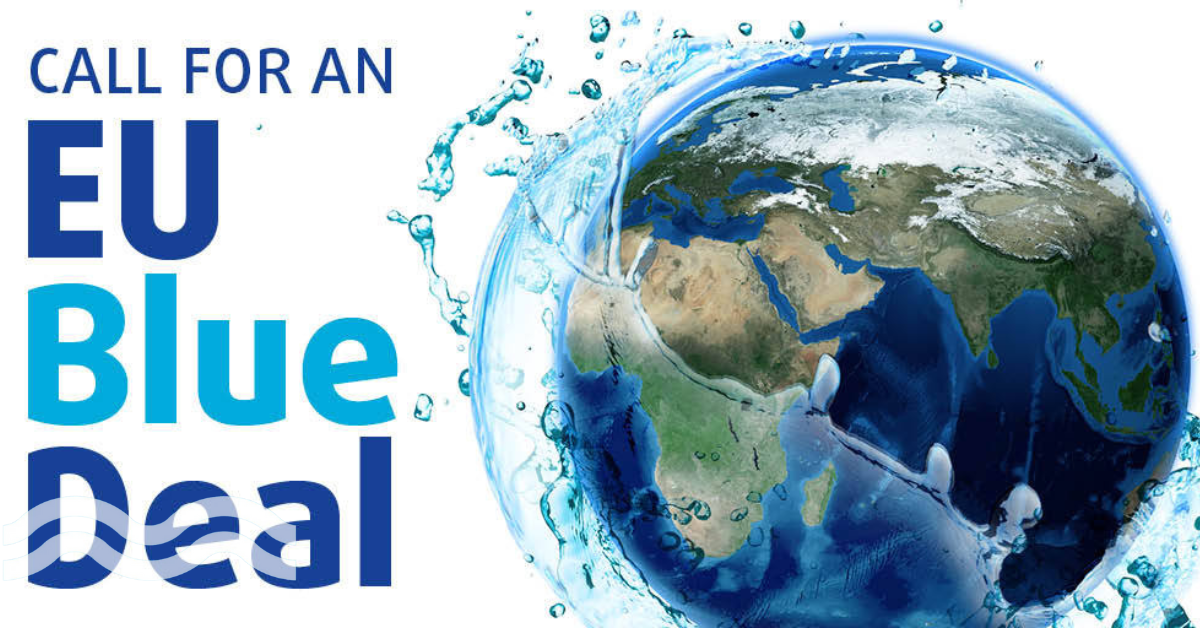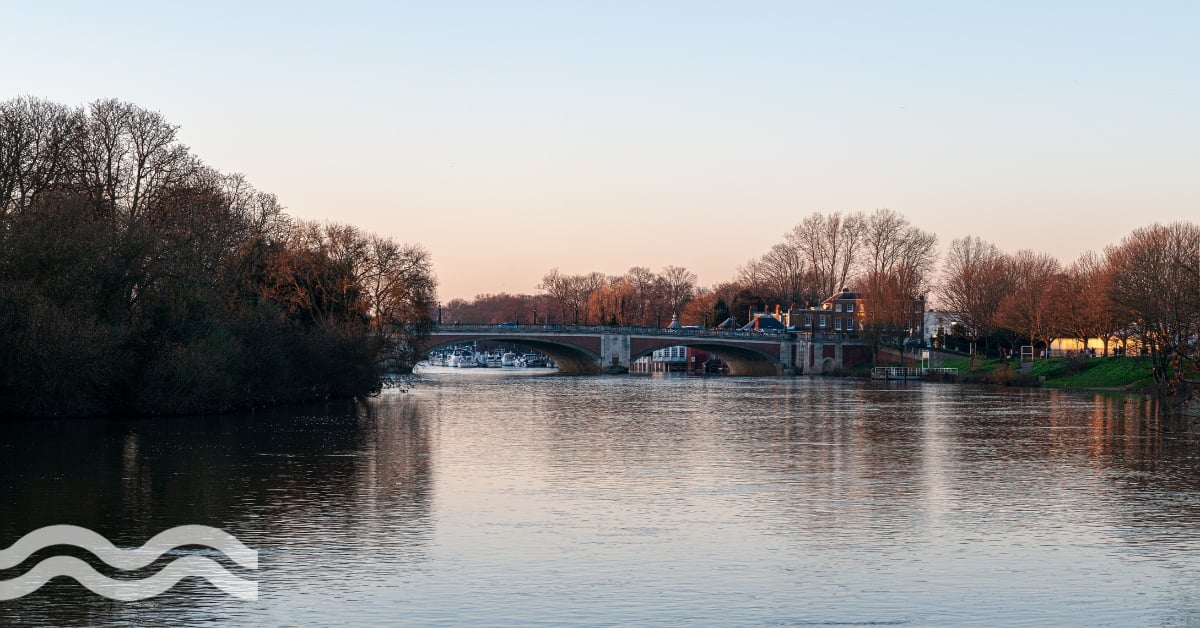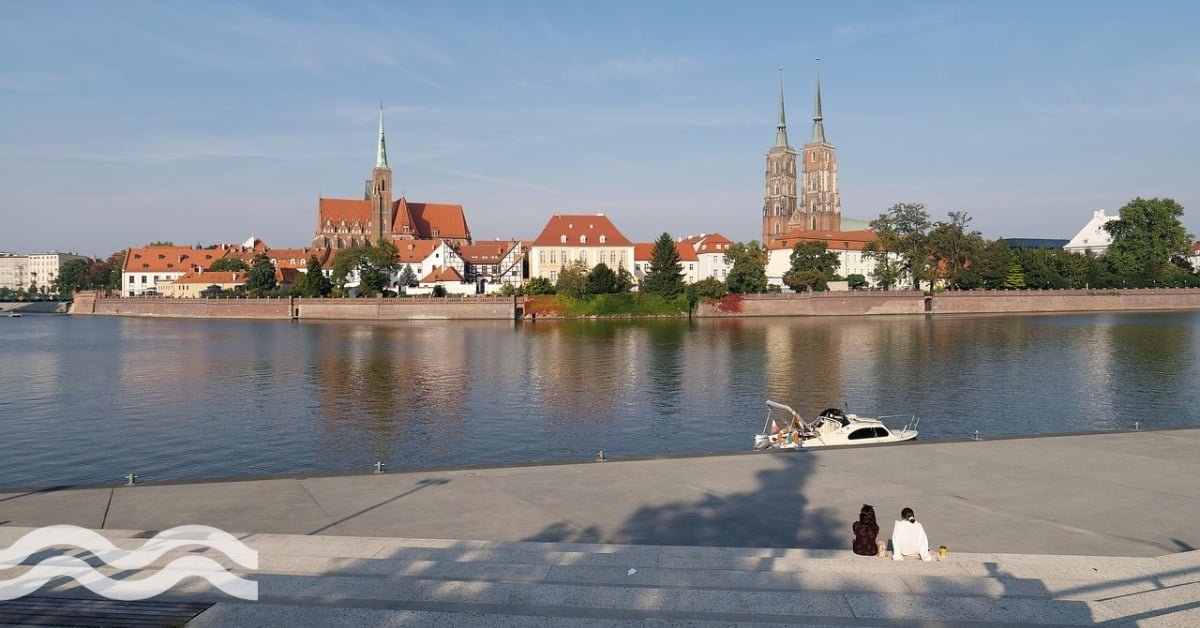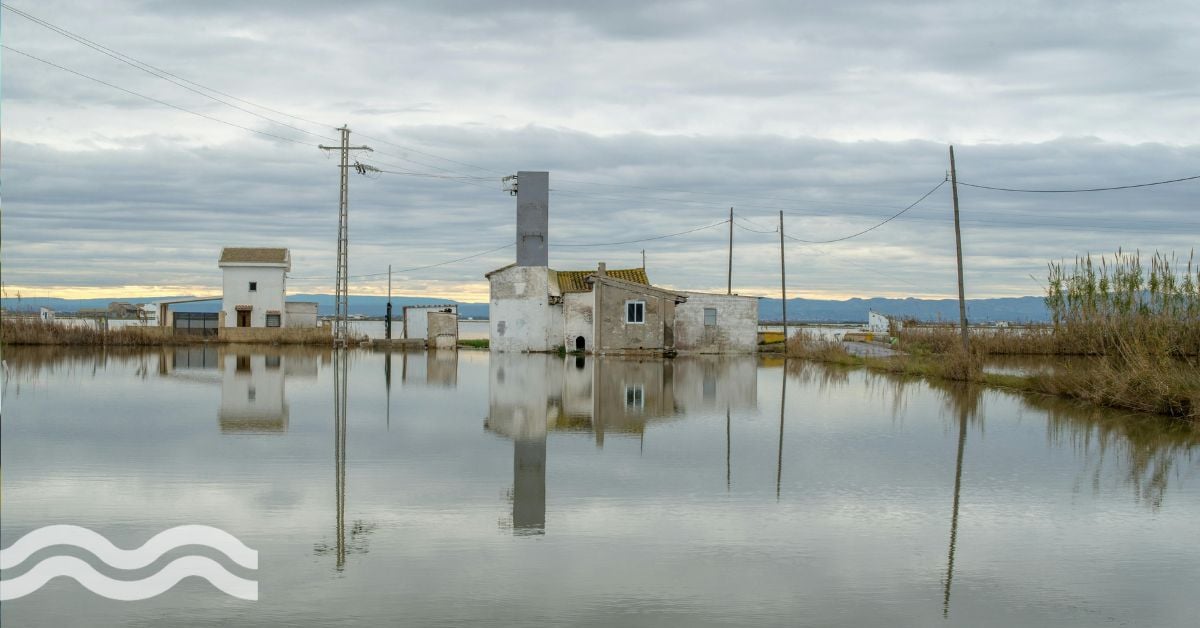The EU Blue Deal: What could it mean for the water industry?

In response to the pressing challenges posed by climate change and escalating water scarcity, a cross-party group of European lawmakers recently issued a joint call for the establishment of an ambitious European Blue Deal. We take a look at the deal and what it means for the future water industry.
Understanding the EU Blue Deal
The EU Blue Deal aims to shield water resources from climate-induced stress while promoting sustainable ocean energies. It seeks to complement the objectives of the European Green Deal by advocating for the sustainable management of water supplies.
According to MEPs, the impacts of climate change, rapid urbanisation, industrialisation and unsustainable agricultural practices have exerted immense pressure on Europe's water resources. They highlight the need for immediate action at both the member state and EU levels, emphasising that proactive measures are indispensable to mitigate the far-reaching consequences of inaction.
MEP Pernille Weiss, the chair of the MEP Water Group, stresses the necessity of adopting a holistic strategy that addresses water-related challenges across diverse sectors such as agriculture, the environment, industry, energy, and domestic usage.
Speaking to Aquatech Online, Durk Krol, executive director at Water Europe, says: "Water has too long been taken for granted. The call for a EU Blue Deal ahead of the next European elections is very timely. It is now up to the EU Member States, the European Parliament and the European Commission to make it happen.”
Embracing the ‘blue economy’
Beyond water conservation, the EU Blue Deal would also encompass the burgeoning ‘blue economy’, which includes ocean and coast-based industries, as well as offshore renewable energies like wind and tidal power.
The EU's focus on the 'blue economy' as part of its broader environmental and economic strategies is aimed at tapping into the vast potential of ocean resources while ensuring sustainability and environmental protection. Within this context, the development of ocean and coast-based industries, as well as the promotion of offshore renewable energies such as wind and tidal power, have gained significant attention. These initiatives are crucial in diversifying energy sources, reducing carbon emissions, and fostering economic growth in the EU.
However, the implementation of these initiatives will not come without challenges. One of the primary concerns highlighted by the European Court of Auditors is the issue of limited maritime space. The EU, like many other regions, faces constraints in terms of available oceanic territory for the development of various industries and renewable energy projects. This limitation necessitates careful planning and management to ensure the optimal utilisation of available maritime resources without causing conflicts among different stakeholders.
Balancing economic development with environmental protection
Moreover, the report also emphasizes the potential environmental impacts associated with the expansion of the 'blue economy.' Increased industrial activities, especially in sensitive marine ecosystems, can lead to various ecological consequences such as habitat degradation, biodiversity loss, and disruption of marine ecosystems. Thus, sustainable and environmentally conscious practices are essential to minimize any negative repercussions on the marine environment and its biodiversity.
In response to these challenges, EU lawmakers are likely to focus on implementing robust regulatory frameworks and environmental safeguards to ensure that the expansion of the 'blue economy' is conducted in a responsible and sustainable manner. This might involve stricter permitting processes, environmental impact assessments, and the enforcement of best practices to mitigate the potential adverse effects on the marine environment.
Overall, the EU's emphasis on the 'blue economy' underscores the importance of balancing economic development with environmental sustainability, calling for comprehensive strategies that prioritize both growth and conservation in the maritime sector.
Addressing strains on water resources and proposed measures
MEPs also express concern over the potential strain on water resources caused by Europe's ongoing green and digital transitions, particularly within water-intensive sectors like semiconductors and hydrogen production. Despite the availability of dedicated funds for key economic sectors, they believe there is an urgent need to prioritise water within their value chains to ensure a successful shift toward a net-zero economy.
To address the multifaceted challenges related to water security and resilience, MEPs are advocating for the appointment of a dedicated EU Commission vice-president responsible for overseeing water issues. They propose the implementation of ‘water-smart legislations’ aimed at fostering a society where the value of water is comprehensively acknowledged and understood.
Krol tells Aquatech: “Water has always been politically weak because of its fragmented and transversal nature. This can only be overcome by changing water into a stand-alone topic for which a dedicated EU Commissioner, national ministers and local aldermen are responsible and can be held accountable.
Challenges of the EU Blue Deal
There are of course challenges to be aware of with the proposed deal.
“The biggest challenge for the blue deal is that it aims to enable every sector to get the water they want; growers, industry and the public. In areas such as Spain that is already resulting in significant groundwater depletion,” says industry analyst David Lloyd-Owen from consultancy, Envisager.
Speaking to Aquatech Online he says: “While leakage reduction is mentioned, this does not go far as some countries (such as Germany and Denmark) already have notably low levels of leakage. While the need for demand management is noted for all sectors, it would have been good to see some specific actions, such as universal domestic smart metering (as already mandated for electric metering), water use efficiency for industry and obliging irrigators in vulnerable areas to adopt smart irrigation.
“The deal’s emphasis on generating high quality and comparable data is encouraging, however. Europe has already made a good start here, compared with many other countries. They need to ensure that member states report annually about their infrastructure development to enable meaningful comparisons over time.”
A promising future for Europe
The EU’s proposed Blue Deal represents a significant step toward addressing the multifaceted challenges posed by climate change, water scarcity, and the sustainable utilization of ocean resources. With a strong emphasis on safeguarding water resources and promoting the 'blue economy', the EU aims to strike a delicate balance between economic growth and environmental conservation.
By acknowledging the limitations of available maritime space and the potential environmental impacts of industrial expansion, EU policymakers are advocating for the implementation of robust regulatory frameworks and sustainable practices to ensure responsible development within the maritime sector. This includes measures such as stricter permitting processes, comprehensive environmental impact assessments, and the enforcement of water-smart legislations to prioritize water conservation and sustainable usage.
However, the proposed Blue Deal does face challenges, notably in addressing the strains on water resources within various sectors and regions, as well as the need for comprehensive demand management and specific action plans for different industries. It is crucial for the EU to emphasize the generation of high-quality and comparable data, encouraging effective monitoring and evaluation of water-related initiatives across member states.
In the coming years, the successful implementation of the EU Blue Deal will depend on the collective efforts of member states, the European Parliament, and the European Commission to prioritise water management and sustainability within their policies and actions.
By fostering a comprehensive understanding of the value of water and the need for responsible ocean-based economic activities, the EU can set a promising example for other regions seeking to balance economic growth with environmental preservation.


